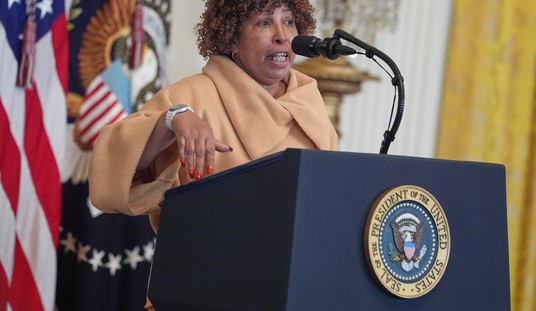As one of the world’s leading nanotechnology researchers, Harvard professor Charles M. Lieber was seen by many of his colleagues as a future Nobel Prize winner. Lieber desperately wanted that too, and he was willing to partner with the Chinese Communist Party to get it. That ended poorly for him last week when a federal jury in Boston convicted him of two counts of filing false tax returns, two counts of making false statements, and two counts of failing to file reports for a foreign bank account in China after Lieber hid hundreds of thousands of dollars he received in cash from the Chinese government and lied to two different federal investigators about his ties to the CCP’s Thousand Talents Program (TTP). Lieber, who held professorships in Harvard’s chemistry and engineering departments, also hid the existence of a Chinese bank account in his name, which contained approximately $200,000.
Lieber signed a contract with the Wuhan University of Technology back in 2012 in which he “was obligated to work for WUT ‘not less than nine months a year’ by ‘declaring international cooperation projects, cultivating young teachers and Ph.D. students, organizing international conference[s], applying for patents and publishing articles in the name of [WUT].’” The New York Times reported:
“[The] three-year contract emailed to Dr. Lieber, and displayed to the jury by prosecutors, identified him as a ‘One Thousand Talent High Level Foreign Expert,’ entitling him to $50,000 a month, plus about $150,000 in living expenses and more than $1.5 million for a laboratory, which they called the WUT-Harvard Joint Nano Key Laboratory.”
Lieber was enticed by the part of the contract in which he would “cultivate young teachers” and “train them in the use of the technology he had pioneered,” which is something that would increase his chances with the Nobel committee, according to clips of his interrogation that were played for the jury. One of his former graduate students explained that Lieber had “invented electronic chips so small and flexible that they could be injected into parts of the human body, like the brain or the retina,” that “eventually . . . could lead to breakthroughs in bioelectronic medicine, like restoring sight to blind people or movement to paralyzed limbs.”
Given that body of work, it’s not difficult to understand why Beijing wanted to work with Lieber and even steal/purchase “his” intellectual property. While, obviously, Lieber is a pioneer in his field, since much of Lieber’s research has been underwritten by the United States government — he’s been the recipient of $18 million in grants from the NIH and Department of Defense since 2008 — whether those inventions are his to share with other countries should be a questionable proposition.
In fact, it was during NIH compliance reviews and interviews with the Department of Defense that Lieber made the false statements for which he was later convicted. According to the Department of Justice:
On or about April 24, 2018, during an interview with federal investigators, it is alleged that Lieber falsely stated that he was never asked to participate in the Thousand Talents Program, but that he “wasn’t sure” how China categorized him. In November 2018, NIH inquired of Harvard about whether Lieber had failed to disclose his then-suspected relationship with WUT and China’s Thousand Talents Plan. Lieber allegedly caused Harvard to falsely tell NIH that Lieber “had no formal association with WUT” after 2012, that “WUT continued to falsely exaggerate” his involvement with WUT in subsequent years, and that Lieber “is not and has never been a participant in” China’s Thousand Talents Plan.
After Lieber was arrested in June 2020 as part of the Department of Justice’s China Initiative, he agreed to speak to FBI agents. During those interrogations, the New York Times reported that Lieber first said he’d never participated in the TTP or received money from China. After FBI agents produced the signed contract, he said:
“I should pay more attention to what I’m signing.”
. . .
“That’s pretty damning,” he said. “Now that you bring it up, yes, I do remember.”
He went on to offer detail about his financial arrangements with the Wuhan university: A portion of his salary was deposited in a Chinese bank account and the remainder — an amount he estimated as between $50,000 and $100,000 — was paid in $100 bills, which he carried home in his luggage.
“They would give me a package, a brown thing with some Chinese characters on it, I would throw it in my bag,” he said. After returning home, he said, “I didn’t declare it, and that’s illegal.”
In the videos, Lieber told FBI agents that he never accessed the money in the Chinese bank account and that he eventually came to the conclusion that he “didn’t need it and [he] didn’t believe it was the right thing” to use the cash.
During closing arguments, Assistant US Attorney Jason Casey reminded the jury of Lieber’s denials then his claim that he’d forgotten until the contracts refreshed his memory, but argued that one wouldn’t forget smuggling “bags of cash” into the country and through Customs.
“It’s not that the defendant has no memory,” he said. “He does not want to remember because he knows that he agreed that contract, that he participated in the Thousand Talents Program, that he took bags of cash on an airplane and never reported them to the I.R.S.”
The conviction was the first to come out of the China Initiative, which started in 2018 under President Trump and is currently under fire by the academic research community, who don’t want to have their CCP money spigot turned off. As an example, here’s a description from the MIT Technology Review:
“Launched in November 2018 by the Department of Justice, the China Initiative was meant to counter the threat of Chinese economic espionage but has, in practice, increasingly focused on academics accused of research integrity issues and has disproportionately targeted individuals of Chinese heritage, as an investigation by MIT Technology Review found.”
Research integrity issues? Although some academics believe the universities and scientific journals should be the ones policing this, one thing that’s been glaringly evident over the last two years is the inability of those institutions to detect “research integrity issues” or even punish researchers who blatantly violate ethical rules/laws. (One example: “Peter Daszak and Wuhan-Connected Scientists Were Behind ‘Lancet’ Letter Dismissing Lab Leak Theory“)
And from the Washington Post, Everything is Racist:
Under the Biden administration, the effort has continued despite concerns by civil rights activists that it has amounted to racial profiling, amid a rise in anti-Asian hate crimes in the United States. Some in academia have argued that the initiative has fueled fear and had a chilling effect in research communities.
If the chilling effect in research communities is that researchers are a little more hesitant to take money from Beijing and realize the strings that come along with that money (which should be banned, in my opinion), then that’s a very good thing.
Lieber himself has played the victim. He sued Harvard in 2020, complaining that they didn’t stand by him as he committed felonies.
“Harvard is cooperating with the United States attorney’s office in the prosecution of Professor Lieber,” the lawsuit says. “It is disturbing that Harvard acted solely in its own self-interest by turning its back on a dedicated faculty member who suffers from a terminal illness and who is presumed innocent. More importantly, it is illegal.”
The lawsuit argues that Harvard, for years, benefited from Dr. Lieber’s research, which attracted $10 million in research grants to the university, but then “left Professor Lieber in the lurch, seeking to distance itself from him through denial of his advancement and indemnification requests.”
Given the fact that Lieber had already admitted to FBI officials that he hadn’t quite been truthful with federal investigators about his income from the Chinese government and his illegal offshore bank account, both of which are factors that could preclude Lieber and Harvard from receiving research funding from the US government, it’s stunning that Lieber had the gall to file suit.
But, of course, the main reason these researchers want the China Initiative to go away and any spotlight on the Thousand Talents Program and its US-based beneficiaries to dim is because any investigation into the web of money and technology transfers will reveal influence and relationships that China and US universities would rather have hidden forever. Intelligence officials here now know through defector Dong Jingwei which Chinese students in the US are also part of the TTP, which is known to be a very thin cover for the CCP’s intelligence assets, and when the dots are publicly connected there will be loud screams for a reckoning.

















Join the conversation as a VIP Member